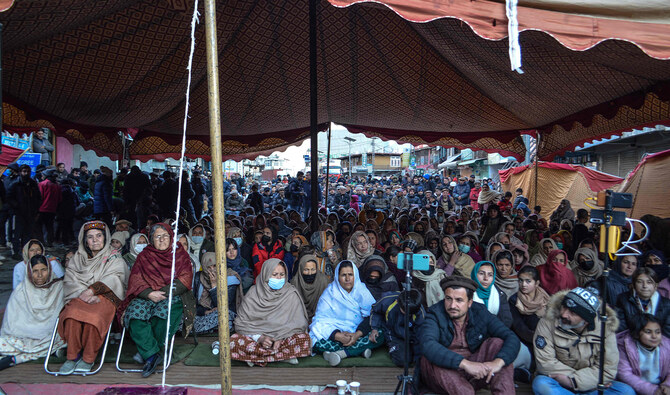KHAPLU, Gilgit-Baltistan: A key highway connecting Pakistan and China via land was reopened for trade and traffic on Wednesday after remaining blocked for six days, as hundreds of protesters agreed to end a sit-in protest against lengthy power outages in the country’s north.
The protest, which began last week, involved residents, political parties and civil society groups who had blocked the Karakorum Highway (KKH) in Gilgit-Baltistan (GB) region against power outages for over 20 hours.
The KKH, a vital trade and strategic route linking Pakistan with China, was obstructed at Aliabad, the district headquarters of Hunza. The area plays a critical role in bilateral trade facilitated by the China-Pakistan Economic Corridor (CPEC), which has increased since an agreement to keep the Khunjerab Pass open year-round for economic exchanges.
Protesters had demanded the GB government operate thermal generators to reduce the duration of the power outages during winters. The regional government said it was unable to run thermal generators due to lack of funds.
Iman Shah, a spokesperson for the GB government, said a high-level meeting in Islamabad was held by the prime minister’s adviser on political affairs, Rana Sanaullah, to discuss the issue. It was decided that the center would allocate funds to run thermal generators in winter while a round of negotiations between protesters and the GB government was held in Hunza, he said.
“After assuring to fulfil all of their demands, the sit-in has been called off by the protesters,” Shah told Arab News.
“The thermal generators will be run in all power crisis-hit districts of GB. At least four hours of power will be provided via thermal generators,” Shah added.

Residents stage a sit-in protest against power outages as they block the Karakoram Highway in Khaplu city, in Pakistan's mountainous Gilgit-Baltistan region, on January 7, 2025. (AFP)
Baba Jan, a member of the committee formed by protesters, confirmed a government delegation, including the GB additional chief secretary, held negotiations with protesters in Hunza on Wednesday.
“And they announced to meet all of our written demands,” Jan told Arab News. “That’s why we decided to end the protest,” he said.
“The KKH is opened for all kinds of traffic and protest have peacefully dispersed and returned their homes.”
Power cuts, known locally as load shedding, are a chronic issue in Pakistan, with many areas facing significant disruptions. The harsh winters in GB exacerbate the problem, leaving residents without adequate heating or access to essential services.
Faizullah Faraq, the GB government’s spokesperson, attributed lengthy power outages to the low flow of water during winters.















